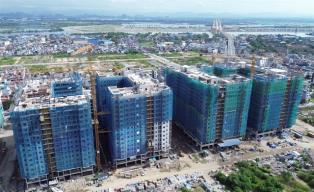The forum "Real Estate Investment in the New Era – New Mindset, New Opportunities", held in Hà Nội on July 3, gathered a range of expert opinions highlighting both the prospects and the unprecedented challenges facing the real estate sector.

HÀ NỘI — Việt Nam is entering an extraordinary phase of development, marked by unprecedented institutional reforms, spatial restructuring, and major infrastructure policies.
The forum "Real Estate Investment in the New Era – New Mindset, New Opportunities", held in Hà Nội on July 3, gathered a range of expert opinions highlighting both the prospects and the unprecedented challenges facing the real estate sector.
Speaking at the event, Trần Đình Thiên, a member of the Prime Minister’s Economic Advisory Council, emphasised: “Việt Nam is striving for double-digit economic growth – essentially twice the current rate. In this context, the real estate market will explode, but the risk of collapse is also very high if we fail to reform institutions quickly enough to respond to volatility.”
According to Thiên, the biggest bottleneck lies in the incomplete framework of land and financial markets.
“If policy logic remains unchanged, the likelihood of failure is 100 per cent. We must escape the entrenched ‘ask–give’ mechanism and create a truly competitive environment for businesses,” he warned.
The event also recorded more optimistic views regarding development scale. Nguyễn Trung Vũ, Chairman of Cen Group, said: “We are witnessing unprecedented changes in scale. In the past, a 1,000-hectare project was considered large. Today, mega urban areas of 4,000 to 10,000 hectares are emerging. This is an entirely different game.”
Vũ argued that the market would not see a price boom – which is already excessive – but rather a surge in supply.
“In the next five to ten years, abundant supply will create opportunities for many young people to afford housing, instead of being priced out,” he observed.
Commenting on policy aspects, Nguyễn Văn Đính, Vice Chairman of the Việt Nam Real Estate Association, remarked: “The entire political system is determined to remove bottlenecks. Resolution 68 has officially recognised the private sector as the most important growth driver, and the latest resolutions show the Government’s strong commitment.”
However, Đính warned of the 'dark side' of uneven reforms: “Some localities are setting land prices excessively high, effectively legitimising bubbles and pushing genuine buyers out of the market. This is a serious risk if not properly controlled.”
According to Lê Xuân Nghĩa, Director of the Institute for Development Consultancy, spatial development changes – especially the policy of provincial mergers and the development of strategic infrastructure corridors – will trigger a new wave of urbanisation.
“When connectivity infrastructure is synchronised, satellite economic centres will emerge. But businesses must professionalise their finances, ensure transparent governance, and prepare for scenarios of major market fluctuations,” Nghĩa said.
In the long term, many experts agree that the potential for a property boom is tangible. Yet this comes with significant risks, ranging from capital shortages and global policy shifts to the danger of supply–demand imbalances and localised price bubbles. — VNS





